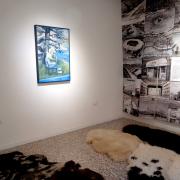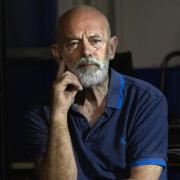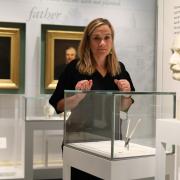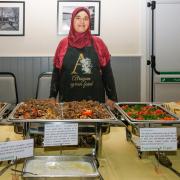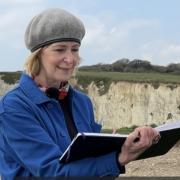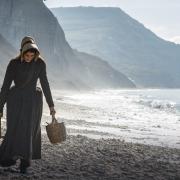The perfect storm of covid, the cost-of-living crisis and Brexit proved devastating for culture and the arts. Lockdown and pandemic protocols meant that venues were forced to shut, shows were pulled, projects abandoned, and performers, technicians and creative teams driven from the industry
Meanwhile, leaving the EU has involved red tape and regulations that have taken their toll on touring companies. Now, with many venues still struggling to survive, everyone, including audiences, are affected by rising costs and escalating prices.
Finding a way forward is far from easy, but Lighthouse Poole is pioneering a strategy to keep the arts in Dorset and beyond, not just alive but thriving into the future. The venue - the largest arts centre outside London - is launching the Lighthouse Academy, a new flagship programme for creative engagement offering young people and artists a wealth of training and development opportunities right here in Dorset.

The programme aims to help cultivate the next generation of performers, writers, and technicians as well as providing a safe space to explore creative ideas and develop artistic networks. Boosted by a new Arts Council England grant of £350,000 a year, which runs from April 2023 to March 2026, it says it is intent on making its Academy ‘a beacon for artistic progression and development, not just in the south-west but nationally.’
The concept is the cornerstone of a new five-year Business Plan for Lighthouse which launches this month. It brings together a number of the art centre’s existing programmes offering platforms for young writers and technicians, as well as expanding its successful Sanctuary artist residency.

The idea grew largely out of a period of reflection and analysis during lockdown, as Lighthouse CEO Elspeth McBain explains: ‘We have always had a strong programme of community engagement and learning participation, but we were so focused on the shows coming in and what we needed to do to deliver those that we never really talked about it that much. Now, we want to find the next generation of lighting designers, sound designers and marketers; the people who aren’t necessarily on the stage.’
McBain stresses that they want to ensure that the training and support is affordable, offering bursaries for those who wouldn’t otherwise be able to take part. ‘There are so many roles we can signpost young people to, whether it’s a work placement at the age of 15 or coming in as an intern when they graduate.’
She recalls the mother of a teenager who took part in a recent technician course telling her: ‘He really loved it, but I really don’t want him to go into professionally. There’s no money in it.’
McBain looks aghast. ‘My response was - are you kidding me? People are desperate for technicians.’

However, with two theatres, a concert hall, a cinema, art gallery and function rooms at its site on Kingsland Road, Lighthouse Poole has a multi-disciplinary approach to its Academy plan, which is also highly inclusive. It can offer rehearsal and development facilities for visiting theatre, dance and music companies, and it frequently welcomes specialist groups.
The day I visit, members of the Dorset Blind Association were busy in the studio working with Blandford-based playwright Christine Diment on a showcase of their theatre work called Blind Date. The project was inspired by Rose, a groundbreaking play about blindness and disability which was co-written by Christine and also performed at Lighthouse.
‘We are giving opportunities to actors, writers and artists with a visual impairment. It’s exactly the sort of thing that the Lighthouse Academy is keen on developing,’ explains Diment. ‘They have given me so much support and help. Nothing is too difficult for them.’
Other projects workshopped, rehearsed, developed and performed at Lighthouse recently have included locally based company Dorsetborn with its touring play Georgia & the Iceberg, and Gecko Theatre which has been in rehearsal with its show Kin.
There is also the return of Sanctuary, the successful Lighthouse initiative aimed at providing young artists, including performers, writers and technicians, a creative space to gain experience and develop their skills.

The run-up to the launch of the Academy has seen the appointment of creative engagement manager Martha Earley. Her role is central to establishing the Academy as THE hub for artistic and creative expression. ‘We’re looking at different ways to foster that idea and help make connections,’ says Earley, who describes her new role as a dream job. ‘We are investing in the next generation, and we want to show young people how they can enter these kinds of careers.’
She points out the wealth of talent available across Dorset and the southwest, including young performers, writers and technicians who were starting their careers in London and elsewhere but were forced to return home by the pandemic.
‘We want to let them know that something exciting is happening right here in Poole - the opportunity to create and work together. We can develop something that’s very bespoke to this area but also aim to have a national focus in the future.’

The Academy project has been backed to the hilt by the new chair of Poole Arts Trust, MT Rainey OBE, the highly influential former deputy chair of Channel Four who sits on the board of, among others, The Booker Prize and has spent decades working in advertising and the creative industries both in the US and the UK.
Rainey, who has a home in Poole, has been a champion of Lighthouse for many years and joined the board of Trustees in 2020. ‘We have been working with young people at Lighthouse for quite some time - through schools and various academic organisations in the area, as well as through the local community. Now we are trying to bring it all together under this idea of The Academy.
‘We want to make more potential partners aware of this exciting new initiative. Lighthouse is an incredible asset with a really interesting programme. We want to expand it, deepen it and develop this innovative pipeline for young people to become more engaged and involved with the arts.’
If you’re reading this and wistfully wondering whether you’re too old to take part in this flagship programme, Rainey stresses that although young people are the primary target for Lighthouse Academy, there will also be opportunities that anyone can get involved in. So, it really is worth checking out.
Find out more at lighthousepoole.co.uk/get-involved/what-is-lighthouse-academ








